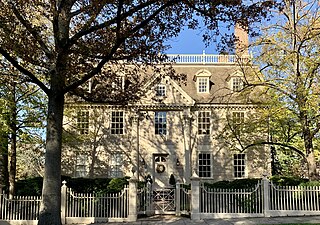“A ministerial member pleaded a call of nature”
The Massachusetts House started its session on Friday, 17 June 1774, at 9:00 A.M.
The first action was a committee report on a land grant, which the legislators read and accepted.
Then came the all-important “Committee appointed to consider the State of the Province.” The House approved a motion “The the Gallaries be clear’d and the Door be shut.”
Ordinarily this step was to keep spectators away from sensitive discussions before official votes, so legislators could speak freely and discuss compromises. In this case, however, House clerk Samuel Adams and his allies also wanted to keep people in.
The Rev. William Gordon recounted:
The designated men were:
At that moment Adams and Cushing were leading the discussion in the chamber. Bowdoin was home sick, Adams was in Boston, and Paine on his way back to Salem from Taunton with fellow legislator Daniel Leonard.
The House then approved paying £500 for those five men’s expenses traveling and staying wherever the congress met. Finally, with a lot more verbiage than I’ll reproduce, the chamber resolved that this “Meeting of Committees” was so important that it urged towns to come up with that £500 outside of the regular tax system in case the Council didn’t get around to approving this bill or the governor vetoed it.
By this time word had reached Gage at the house he rented in Danvers (shown above at its new location). He knew what the General Court was up to.
TOMORROW: The key.
The first action was a committee report on a land grant, which the legislators read and accepted.
Then came the all-important “Committee appointed to consider the State of the Province.” The House approved a motion “The the Gallaries be clear’d and the Door be shut.”
Ordinarily this step was to keep spectators away from sensitive discussions before official votes, so legislators could speak freely and discuss compromises. In this case, however, House clerk Samuel Adams and his allies also wanted to keep people in.
The Rev. William Gordon recounted:
They had their whole plan compleated, prepared their resolves, and then determined upon bringing the business forward. But before they went upon it, the door-keeper was ordered to let no one whatsoever in, and no one was to go out:Inside the Salem courthouse, the committee laid out their recommendations. First, the General Court would appoint five men to represent Massachusetts at an upcoming “Meeting of Committees from the several Colonies on this Continent”—what became known as the Continental Congress.
however, when the business opened, a ministerial member pleaded a call of nature, which is always regarded, and was allowed to go out.
He then ran to give information of what was doing, and a messenger was dispatched to general [Thomas] Gage, who lived at some distance.
The designated men were:
At that moment Adams and Cushing were leading the discussion in the chamber. Bowdoin was home sick, Adams was in Boston, and Paine on his way back to Salem from Taunton with fellow legislator Daniel Leonard.
The House then approved paying £500 for those five men’s expenses traveling and staying wherever the congress met. Finally, with a lot more verbiage than I’ll reproduce, the chamber resolved that this “Meeting of Committees” was so important that it urged towns to come up with that £500 outside of the regular tax system in case the Council didn’t get around to approving this bill or the governor vetoed it.
By this time word had reached Gage at the house he rented in Danvers (shown above at its new location). He knew what the General Court was up to.
TOMORROW: The key.


2 comments:
The house shown in the photo is not one I recall from Danvers (where I live). Google, when asked where Thomas Gage dwelt while in Danvers returns the Page House, which does not appear to be the same house.
The house that Gage rented in Danvers was disassembled in the 1930s and moved to the Kalorama district of Washington, D.C.
Post a Comment